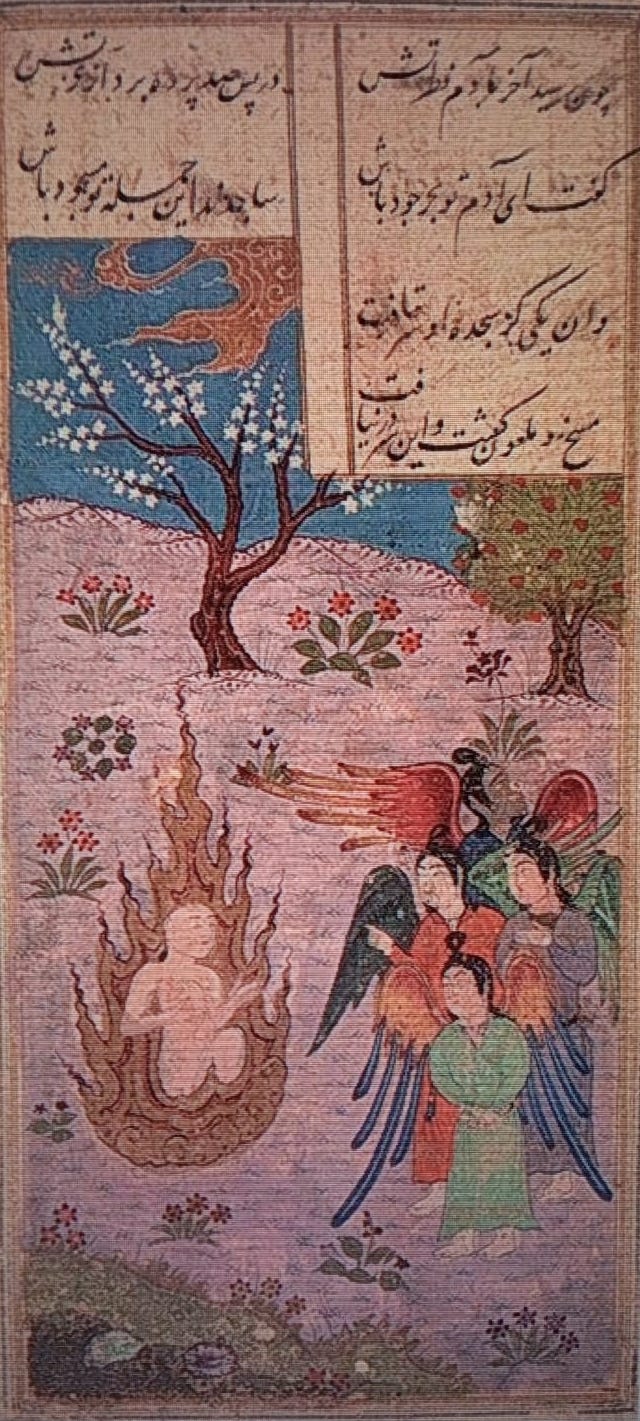Growing up as an Ismaili Muslim, the story that I often heard about the Devil, Lucifer, Iblis was that we was a being that rebelled against God. I sometimes heard that he was an Angel and sometimes heard that he was a djinn, but in all cases he was God’s favorite. When God created Adam, he asked the rest of the Angels to bow down to Adam, and the only one to refuse was Iblis. He was so prideful, that he did not want to bow down to an inferior being. Angered by this God kicked him out of heaven, and has since spent his time as a force of evil, tempting humans, and getting this go astray, or away from the “right path”.
There are several things to analyze in this story. But I want to focus on intention in this. Based on this rendition of the story, the rebellion was a matter of pride, and in a sense a matter of being replaced. Lucifer was the light bringer, he was the greatest of God’s creation, and now God has put one above, him. This pride was was drew him away from God and rooted him as a source of evil.
I recently however, was told a different rendition of this origin story for the devil. The Sufi version. Mansur al-Hallaj wrote a story about Moses going up Mount Sinai and as he ascends the mountain he meets many key figures from the Abrahamic traditions. Near the top of the mountain, before he gets to God, he meets Iblis. And he asks him why he rebelled against God. He said that he could not bow to another because his love was for and towards God. He loved God so much that he couldn’t bow. There are some that interpret this as a dilemma between God’s will and God’s command. In this Sufi twist to the story, It no longers is a matter of pride, but a matter of love. This is why Sufi’s believe that the Devil and Mohammed are the two true monotheists, because their love is true.
Depending on whether you think the Devil made the wrong choice, I think the following Mary Shelley quote applies
No man chooses evil because it is evil; he only mistakes it for happiness, the good he seeks.
The Angels meeting Adam, a painting from the Conference of the Birds by Farīd al-Dīn ʿAṭṭār



